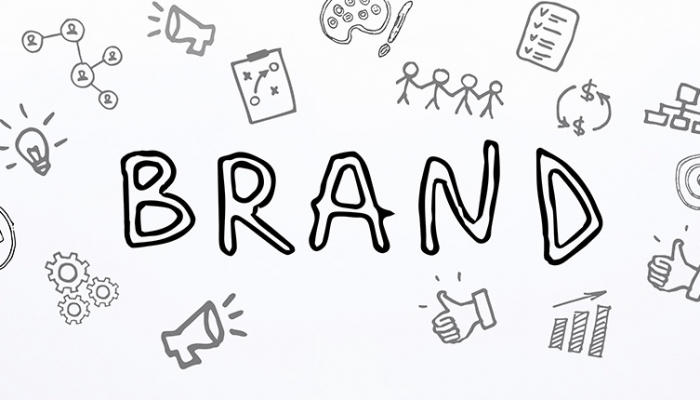How to build your personal brand
As part of our Access Intelligence Women In Work inclusion group, we were lucky to have time with FutureBricks founder Arya Taware and Airbus head of public affairs Katie Roscoe, who shared how they have built their own personal brands alongside building their careers.
Bringing your personality and values into your work can make your job so much more than just the way you earn money. Here is advice from Arya and Katie on how to build your own personal brand for career success and a more rewarding work life.
1) With authenticity
‘I try to be as authentic as I can. Especially in the age of social media, there is pressure to show perfection and only happy moments,’ said Arya.
‘Authenticity is really key,’ agreed Katie.
‘Your mask will quickly slip if you aren’t being yourself in a professional setting. For me, it’s important to know what you stand for, and to find out if it comes across to other people – are you presenting something that others aren’t really getting?’
2) With passion for what you do
Not everybody can work in a sector they have a real connection with as a career. But if you really love what you do, or at least aspects of it, that will shine through in your interactions and inform what you come to be known for.
Arya had always wanted to be an entrepreneur, eventually launching FutureBricks at 22-years-old, straight out of university, having not worked for anybody else:
‘My first employment was my own business. At the start it was really hard, as a sole female founder, and in an industry that is male-dominated, and older – deals are still occasionally done in pubs.
‘What I do, entrepreneurship, is all about psychological endurance. What kept me going was inner self-belief. I knew that all I needed was one yes.’
While Katie’s choice of career didn’t come with a clear path, she followed her passions:
‘I knew from a young age I wanted to be in Westminster somehow – I basically watched “Yes, Prime Minister” and thought that sounded really exciting! A key moment for me was knowing when to make the jump in my career – make the most of your opportunities, enjoy your job, but know when to move into something new.
‘Don’t just jump for money, if you can help it. Stop and think, if you’ve got the opportunity – is the move right for you? Don’t jump just because you’re unhappy. Sometimes that’s not a choice you may have, but if you’re lucky enough to have the option to wait for the right thing? That’s an amazing thing to do.’
3) With connections
Both Arya and Katie see the benefits of building a network on LinkedIn but use it in very different ways. As an entrepreneur, Arya uses it to build her personal brand alongside her business; for Katie, it is a way to amplify her work with Airbus.
‘LinkedIn is a good professional platform,’ said Arya. ‘You connect with people there and then meet them in real life, or vice versa. It allows us to reach people we otherwise wouldn’t reach (unless we learn to clone ourselves…). It’s a powerful tool and how we use it is completely at our disposal.’
‘I do really like that you can connect with people so simply now,’ added Katie. ‘I have made connections through it that have really helped me.’
4) With mentoring
Katie has benefitted from mentorship in her career, and recommends it for the learning that can happen on both sides:
‘Start a relationship with someone that you know, as a part of the work you do already, or even encourage your organisation to set up a programme. You can reverse-mentor as well – a senior person on the team connecting with a more junior person. We all have different skills and experiences to share. As you build your external network, the right people become more apparent. Always keep it in the back of your mind.’
Not everyone will be with you for the full journey – ‘I look at life as a long train,’ shared Arya.
‘Some people will come with you from point A to C, and then they’ll head off. And then other people are with you longer. I don’t believe in the singular; it’s always collective, for me’.
5) With confidence in your capabilities
‘My practical advice about having to speak up at events and roundtables, when I was more ‘green’, was to speak first or get in early if you’re feeling nervous,’ shared Katie. ‘When watching a panel, I’d stick my hand up straight away, and then I’d feel a bit calmer.
‘The industry I’m in can be hard to get to grips with – to start with, I used to speak to prove that I knew what I was talking about and that I should be there. As you get more experience, you should assume that you’re in the meeting/event for a good reason.
‘Speak when it will add value to a conversation, not just to show what you’re speaking about.’
6) With integrity
‘As a society, we’re trying to evolve, but we’re not always where we want to be,’ said Arya.
‘On an individual level, how we combat that is by challenging, communicating, and showing. Sometimes things aren’t worth a fight, sometimes you’ve got to stand your ground. The elimination of subconscious bias and stereotypes might not happen in our lifetime, but it’s up to us how we change perceptions’.
‘It’s having the strength to call things out and challenge,’ agreed Katie.
‘It’s on us, as we move through the world. Where you feel empowered to do so, challenge. That can have its own risks if you’re very junior, so lean on others around you who may be able to give you advice and guidance, too’.




